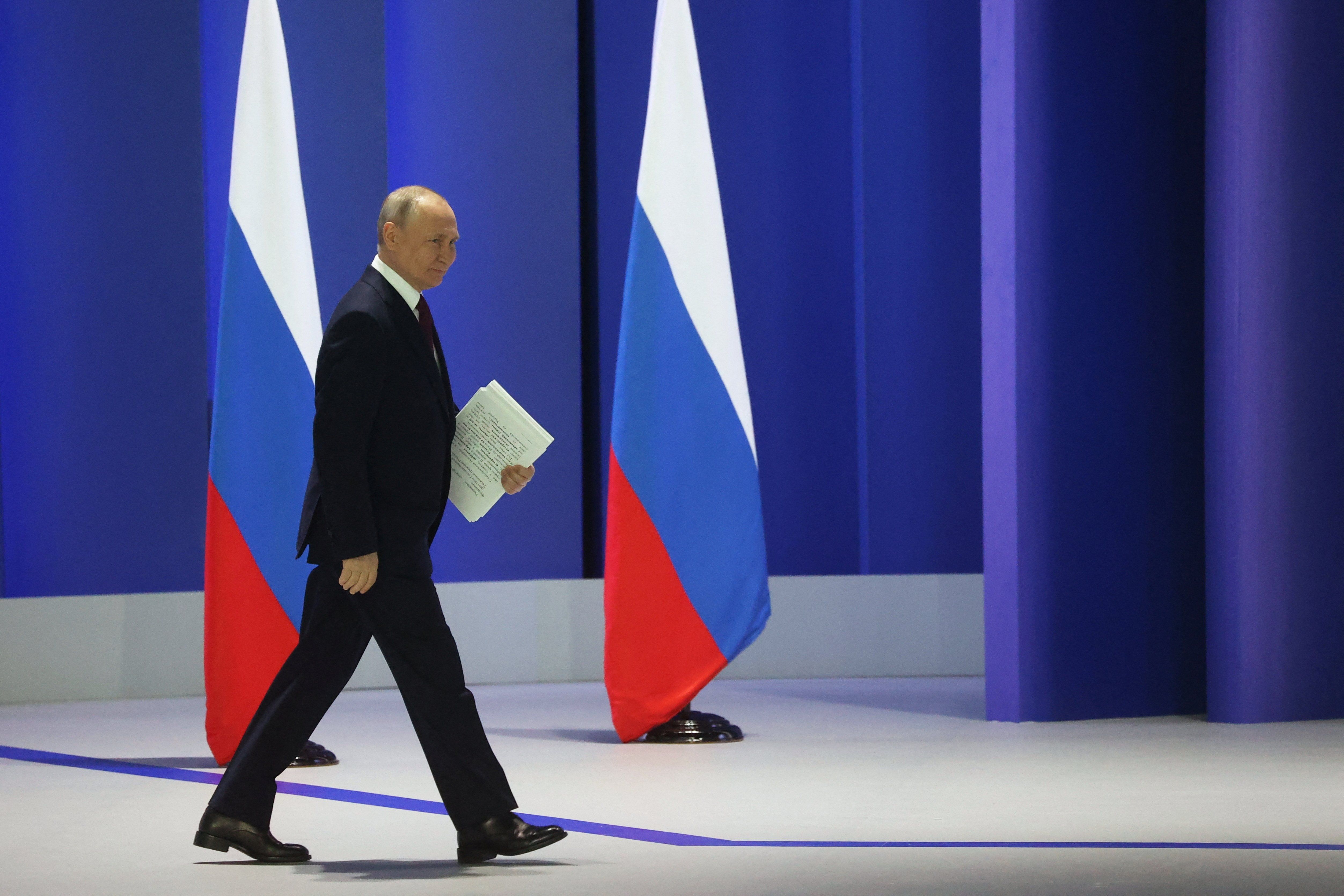Putin blames the West … for everything
Russia’s President Vladimir Putin played all the greatest hits Tuesday when he took to the podium for a State of the Union address to Russian legislators and the military just days out from the one-year anniversary of the Ukraine war. In his typically defiant fashion, Putin said that the West “started the war” and warned that Moscow would not back down from its objectives in Ukraine, emphasizing Russian unity on the issue. He also revived the (debunked) justification that the war was crucial to “protect Russia and liquidate the neo-Nazi threat” from Kyiv. Crucially, Putin implied that Russia would break with the New START treaty, which limits Moscow and Washington to deploying 1,550 nuclear weapons a piece, though Russia has reportedly already exceeded that number. Suspending the treaty would also block the US from monitoring compliance. This comes just hours before US President Joe Biden will deliver a speech in Warsaw, where he is expected to again frame the war in Ukraine as a fight for democracy itself.
US-China exchange barbs over Ukraine
China on Monday denied US accusations that it might provide Russia with lethal aid — weapons — to attack Ukraine, telling Washington to stay out of its (albeit complicated) relationship with Moscow. After meeting Wang Yi, China’s top diplomat, over the weekend at the Munich Security Conference, US Secretary of State Antony Blinken warned that giving the Russians lethal aid would be a "serious problem" for Beijing, though he didn’t give further details. In the early stages of the war, the US sounded the alarm about Russia asking Beijing for help and China possibly looking to supply Russia with arms, despite the fact that Beijing actually buys weaponsfrom Moscow and doesn't sell any to the Russians. Ultimately, China didn't answer Russia’s plea for arms — likely to avoid Western sanctions. Now, however, Blinken says that Xi Jinping wants to have his cake and eat it too by calling in public for a negotiated peace in Ukraine while privately supplying Russia with all sorts of non-lethal stuff, such as spare parts for Su-35 fighter jets, to help Vladimir Putin defeat Ukraine. This week, we'll be keeping an eye on Wang as he travels to Moscow and perhaps meets with Putin ahead of a big Xi “peace” speech reportedly planned for Friday.
Brexit never (really) ends
As soon as Tuesday, British PM Rishi Sunak aims to finally confirm a deal with the EU on post-Brexit Northern Ireland trade rules. (Once again, this is the arrangement that his predecessor, Boris Johnson, reached with Brussels to avoid a hard border between the Republic of Ireland, an EU member state, and Northern Ireland, which is part of the UK.) Sunak hopes that the agreement will both restart Northern Ireland's power-sharing government, currently boycotted by DUP unionists who want to keep the EU at arm's length, and steal the thunder from hardcore Brexiteers within the Conservative Party led by Johnson who back a bill allowing British ministers to override provisions in the 2020 Brexit agreement. Still, it won’t be easy for Sunak to sell the deal to the DUP, which fears being perceived as selling out to Brussels, and to the Tory Euroskeptics, who want to have a say even if the agreement is not put to a vote in parliament. And all this, mind you, is just one of Sunak's myriad ongoing headaches … with Johnson looking over his shoulder.
More For You
For many in Iran, it’s a waiting game for how long Ayatollah Khamenei has left to live.
Most Popular
In a 30-minute call on Thursday, President Donald Trump reportedly told Ukrainian President Volodymyr Zelensky he wants to end the war with Russia as soon as possible — aiming for a deal by summer, but ideally within weeks.
Former British ambassador to the U.S. Peter Mandelson leaves his residence after he was released following his arrest by London police on Monday on suspicion of misconduct in public office, following the release of U.S. Justice Department files linked to the late financier and convicted sex offender Jeffrey Epstein, in London, Britain, February 26, 2026.
The ghost of Jeffrey Epstein continues to haunt the world.
Think you know what's going on around the world? Here's your chance to prove it.
